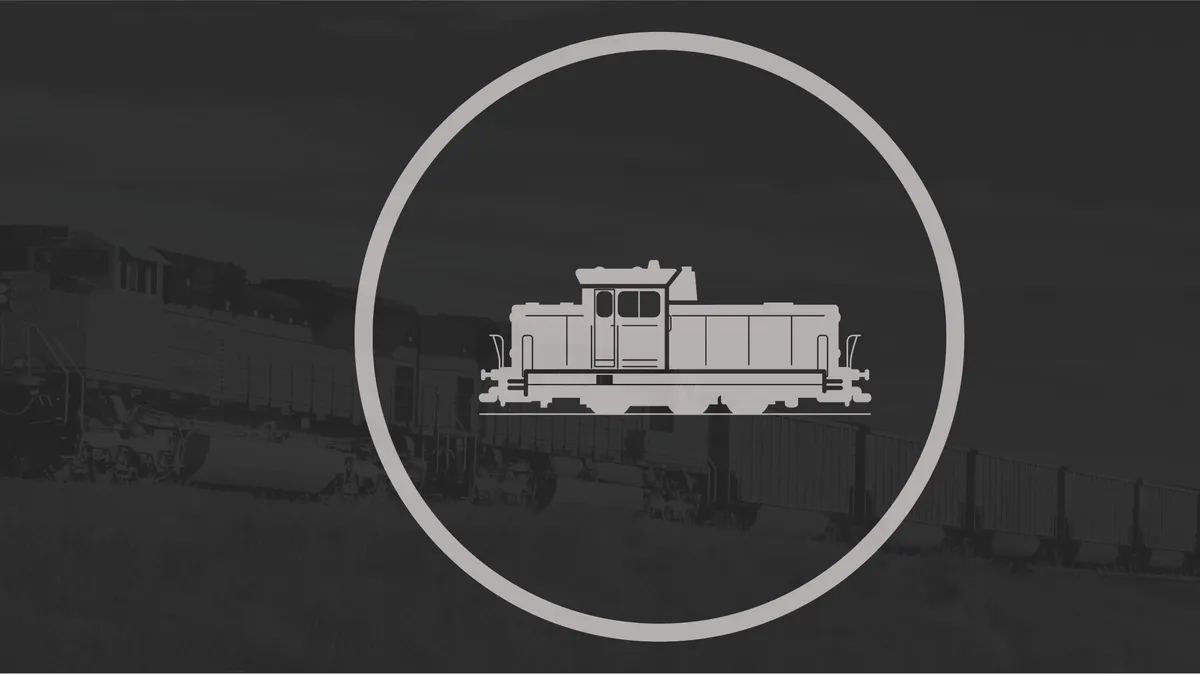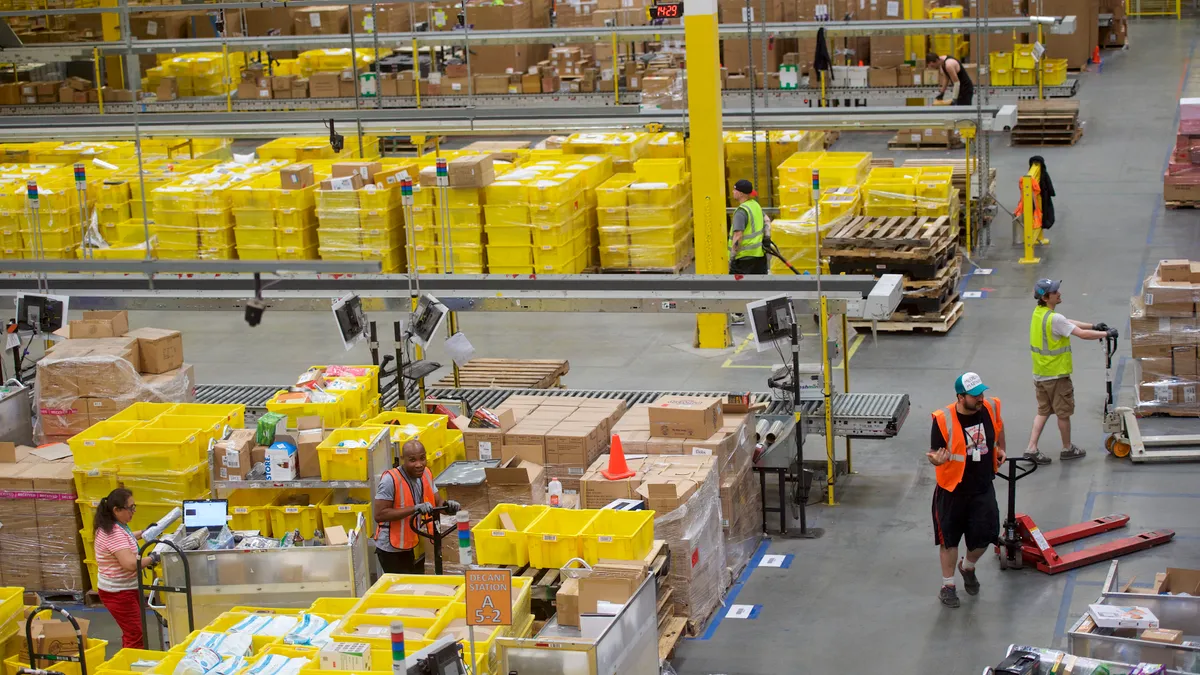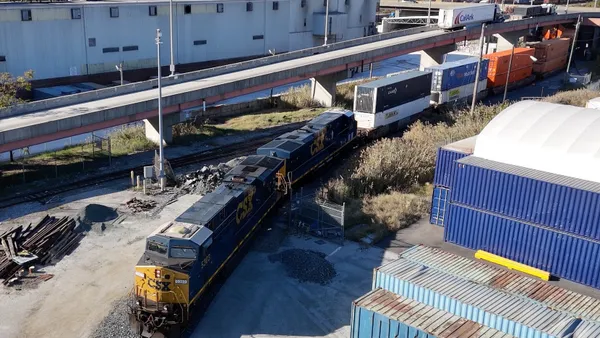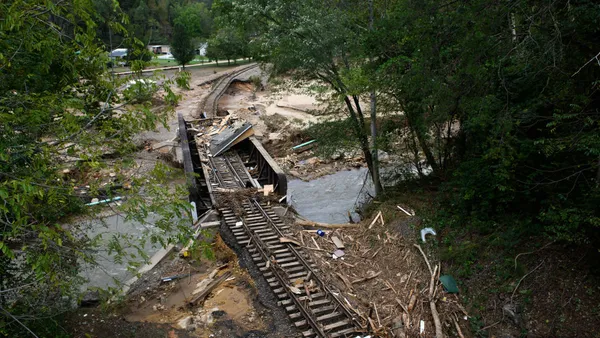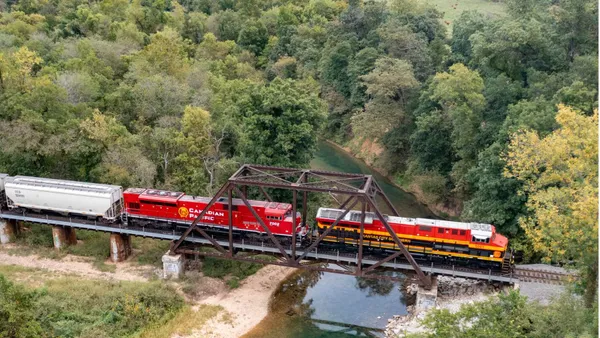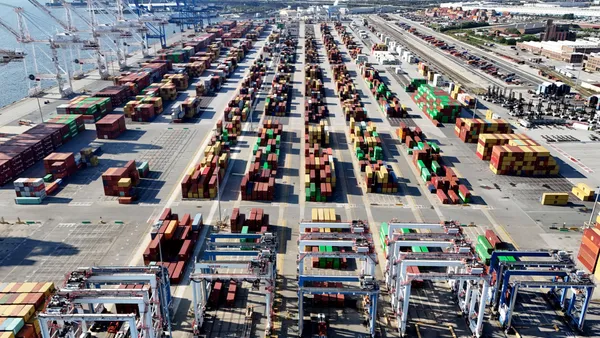Dive Brief:
- U.S. railroads originated 899,673 carloads in February 2020, a 6% year-over-year (YoY) decline, and 935,380 intermodal containers, a nearly 12% YoY drop, according to the latest numbers from the Association of American Railroads.
- "Rail traffic numbers confirm that the coronavirus is taking a toll on the economy," AAR Senior Vice President John T. Gray said in a statement. "For example, U.S. carloads of autos and auto parts last week were down 70% from the same week last year as auto production declined to zero and consumer spending has begun to shrink demand."
- "The magnitude and duration of the outbreak, its impact on our supply chain partners and general economic conditions, and the extent of social distancing measures and non-essential business shutdowns will influence the demand for our services and affect our revenues," Norfolk Southern General Council Virginia K. Fogg wrote in an 8-K filed last week.
Dive Insight:
Blank sailings and the shuttering of automotive manufacturers are tangibly impacting rail business, but with some saying the economy is already in a recession, the industry could also be faced with a general downturn in demand as some shippers have begun to cancel orders.
Blanked sailings at West Coast ports last month resulted in lower volume for the railroads that service those connections, but rail companies are hopeful for a rebound in the coming weeks.
"The first area we saw a drop off in business was our international intermodal, the business that we handle through the Port of Lázaro Cárdenas," Kansas City Southern CEO Pat Ottensmeyer said in a March 25 presentation. "We saw container shipments to and from Asia, specifically China, drop off quite noticeably a couple of weeks ago. And that continues to be low, but we see our pipeline of new vessel loadings and shipments coming out of Asia currently on the water headed to North America beginning to rebound."
At least three class I railroads — Norfolk Southern, Union Pacific and CSX — have filed paperwork with the Securities and Exchange Commission noting guidance provided in January earnings calls did not take the coronavirus pandemic into account. All three said more details would be provided on earnings calls later this month. CSX will be first to report earnings on April 22.
"US Class I rail traffic showed large scale decline this week, reflecting the disruption of economic activity brought by lockdowns/federal social distancing guidelines under the coronavirus outbreak," Goldman Sachs wrote Monday in a research note emailed to Supply Chain Dive. The railroads are still feeling the effect of the blank sailings, Goldman Sachs noted.
Filings from all three companies included languages suggesting that the pandemic's effect on rail operations and financial performance "could be material" depending on a number of factors.
"COVID-19 could affect our operations and business continuity if a significant number of our essential employees, overall or in a key location, are quarantined from contraction of or exposure to the disease or if governmental orders prevent our operating employees or critical suppliers from working," Fogg wrote, adding that state and local officials have thus far considered rail employees essential.
Rail carriers are working to understand what shippers need as the coronavirus shifts the logistics priorities for many companies. Norfolk Southern has asked its customers to fill out a survey asking shippers "At this time do you expect any changes to your Norfolk Southern provided rail service needs as it relates to COVID-19?"
"Norfolk Southern is working to integrate your feedback into our transportation plans, ensuring we continue to meet your needs and our operations remain fluid," the company's Chief Marketing Officer Alan H. Shaw said in an update. "As changes are identified to our service, we will notify affected customers and work with you to resolve any issues."
BNSF is also asking customers to make contact if their shipment is "needed to support COVID-19 response."



